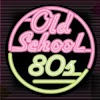When the opportunity presents itself to ask a few questions to someone who contributed to the awesomeness of the '80s, I will continue to share those answers with you right here. Again, lucky for me (and hopefully you), I do get to share a little more awesomeness with you.
 This time that awesomeness is David Sterry. He is best remembered by '80s fans for being lead singer and guitarist for the Australian New Wave band Real Life. The band’s biggest hit single was “Send Me an Angel” which enjoyed success on the charts in both 1983-1984 and then again in 1989. In addition to that relatively uncommon feat, the band had a few other minor hits, but all of the original members other than Sterry would be gone by the mid-90s. He now carries the band name on his own. You will find out how the band came together, all about their biggest hit and much more as we get on to some selections from my interview with David Sterry…
This time that awesomeness is David Sterry. He is best remembered by '80s fans for being lead singer and guitarist for the Australian New Wave band Real Life. The band’s biggest hit single was “Send Me an Angel” which enjoyed success on the charts in both 1983-1984 and then again in 1989. In addition to that relatively uncommon feat, the band had a few other minor hits, but all of the original members other than Sterry would be gone by the mid-90s. He now carries the band name on his own. You will find out how the band came together, all about their biggest hit and much more as we get on to some selections from my interview with David Sterry…Q: When did you realize you wanted to be a professional musician? How did you get your start in the music industry?
David: When I left school at 17, I became an apprentice in the printing trade, but hated the job. I left the day I finished my apprenticeship and did a bit of music teaching as I’d been playing guitar since I was ten. I was also playing in some cover bands, but I never thought I’d be able to make a living just playing. Then in 1980, I answered an ad in the local paper. A keyboard player was looking for a guitarist to write songs with. I was loving all the New Wave bands with synths, so I thought I’d have a go. Richard Zatorski and I started to write together. At first we didn’t want to form a band, just write good songs for other people. But somewhere along the line we picked up Allan Johnson, our bass player, and started playing gigs as The Wires with a drum machine.
Surprisingly, people liked us. We had to change our name because of Wire in England and people convinced us to get a drummer. So along came Danny Simcic. Melbourne, Australia has a fantastic club and pub scene. At that time we could work 7 nights a week, often playing doubles opening for INXS or Midnight Oil and building crowds we’d stolen from them at our own gigs. This was all without a record or demo tape being played anywhere. On a wet Tuesday night in winter, we’d have 2000 people at our resident gig. We must have been earning about a $100 a week each and thought we were millionaires. Record Companies and Managers were falling over themselves trying to sign us. It took us three years from first meeting and learning to write songs to finally releasing “Send Me an Angel” in 1983.
Q: Please discuss your personal musical influences and who molded and inspired the artist you have become. Being from Australia, were you a fan of or influenced by any American music?
David: As a teenager I loved Cream, Hendrix and Led Zeppelin, but I’m a crappy guitarist, so becoming a guitar god was out of the question for me. Australia has a great mix of music from both England and the USA and I guess that mix makes us come up with our Australianish sound. No Aussie bands sound like British or American bands and, for such a small population, the diversity in styles is remarkable. I’ve always been more influenced by English artists especially when punk set the world on fire and the amazing New Wave bands like Human League, Duran Duran, Spandau Ballet and Depeche Mode came along. That’s what I wanted to do. Strangely enough, I’ve got a little Cream cover band at the moment just so I can play some loud guitar. We’re called The League of Extraordinary Oddfellows.
Q: How did Real Life come together as a band? Did you always have aspirations to be heard outside of Australia?
David: It was all via ads in the paper. We never knew each other before and I guess we we’re more comrades than friends. But we did realize that this band was our big chance and, yes, we did aim to get out of Australia. There were only 15 million people here at the time and a gold record is only 30,000 sales. So economically, all bands have to crack overseas markets.
Q: How and why was the band name Real Life chosen?
David: We’d changed our name from The Wires to A Private Life. There was a band in Sydney called Private Life who threatened to sue us if we went up there as A Private Life. So we chose Real Life as it was close to the old one. We didn’t want to confuse or lose our following.
Q: Real Life is probably best recognized for your debut single “Send Me an Angel.” You are credited as the song’s co-writer with Richard Zatorski. What is the back story about how that song was conceived and written? How long did it take to write? Any personal meaning behind the lyrics?
David: All of our songs were quirky little New Wave tunes, but we didn’t think we had a single and there was pressure all around to get a record out. Richard came up with the classic keyboard riff and chords. As soon as I heard it, I knew he’d nailed his part and I really had to come up with the finest words and melody. I was listening to it on my walkman in the back of the band’s car on the way to a gig and I came up with the title and left it at that until I could get home to my 4-track Teac tape machine. And then it’s all a blur. Like many other song writers say, it just came from nowhere. I’d written it all down in a matter of minutes. And I have to say it wasn’t something heartfelt by me as I know it is to many people who love the song. I was really just trying to craft a perfect pop song. Richard actually didn’t like what I’d done at first, but anyone who heard the demo loved it. We re-demo’d it on 24-track a week after it was written and then went and made the record the week after.
 Real Life originally released “Send Me an Angel” in July of 1983 and on their debut album Heartland. The song would enjoy international success including peaking on the U.S. Billboard Hot 100 at #29 in early 1984. In an uncommon achievement, the song would make a return to the charts at the end of the decade. A remix version called “Send Me an Angel 89″ would this time reach #26 on the Billboard Hot 100 in the summer of 1989. The song is about a man questioning if he’ll ever find true love and pleading that he will. Here is the video for “Send Me an Angel” by Real Life…
Real Life originally released “Send Me an Angel” in July of 1983 and on their debut album Heartland. The song would enjoy international success including peaking on the U.S. Billboard Hot 100 at #29 in early 1984. In an uncommon achievement, the song would make a return to the charts at the end of the decade. A remix version called “Send Me an Angel 89″ would this time reach #26 on the Billboard Hot 100 in the summer of 1989. The song is about a man questioning if he’ll ever find true love and pleading that he will. Here is the video for “Send Me an Angel” by Real Life…Q: When you first recorded “Send Me an Angel” did you have a feeling it was going to be something special? Could you have ever anticipated the incredible reaction this single would have? Not just in Australia, but even the U.S. (and New Zealand, Germany, Sweden, etc.)?
David: I loved it (I still do) but, because it was very new sounding with synths and electronic drums and radio here was still stuck on the Eagles, those in the know around us thought it might get into the Top 20. It got to number #2 on the sales charts before radio would play it. [Michael Jackson’s] Thriller kept us from #1. Then it went to #1 in New Zealand (7000 sales gold record!). A great guy named Rick Carrol from KROQ in Los Angeles took it to the U.S. and it just took off. We had to sign a deal in a hurry and get over there to do some TV and press. Then in 1984, we toured with Eurythmics and Berlin and by the time the tour finished we’d gone to #1 in Germany and most of Europe. I’m still pinching myself to this day.
Q: How did things change for you personally and for Real Life after this song’s incredible worldwide success? Were you prepared for all of the attention? Did you enjoy all of the attention?
David: We finally had a little money coming through which was nice as we did it real tough in the early days. We LOVED the girls and the travel, but personally I didn’t like being treated as though I was a rock star. I have a very working class background and I’m proud that my friends are still the friends I had before Real Life. Being the singer, I was more in demand for interviews and attention. This upset the other guys, especially Richard. A magazine put me on the front cover without the other guys, I had nothing to do with it, but I was given the silent treatment for days. So this put a lot of stress on us. And I hated being on TV. I’ve got a head that’s made for radio. I’ve always been shy and radio and television want you to be bright and bushy-tailed. For me it was traumatic.
Q: When you have a mega hit song like that, do you (or did you) ever get sick of playing it?
David: Nah… All you see from where I am is happy, smiling, singing people who are forgetting all their troubles for three and a half minutes. In Lima [Peru] a couple of years ago, the audience sang it so loud that they drowned out the band. None of them could speak English, but they sang the song. When stuff like that happens, I remember where I came from and I feel very humble.
Q: What are your feelings regarding “Send Me an Angel” today 28 years later?
David: I’m amazed at its longevity, that it’s still paying my rent and it’s regarded as pop classic of the era. That song gave me a life that I could only dream of.
 I have always enjoyed the song, but one of my best memories of "Send Me an Angel" was its appearance in the 1986 BMX biking film Rad. It is featured in a special romantic scene when the two lead characters "Cru Jones" (played by Bill Allen) and "Christian" (played by Lori Loughlin) perform a romantic freestyle bike dance set to the song. On a side note, Eddie Fiola performed most of the tricks for Cru Jones and Martin Aparijo wearing a wig performed for Lori Loughlin. You can watch this memorable scene from Rad right here...
I have always enjoyed the song, but one of my best memories of "Send Me an Angel" was its appearance in the 1986 BMX biking film Rad. It is featured in a special romantic scene when the two lead characters "Cru Jones" (played by Bill Allen) and "Christian" (played by Lori Loughlin) perform a romantic freestyle bike dance set to the song. On a side note, Eddie Fiola performed most of the tricks for Cru Jones and Martin Aparijo wearing a wig performed for Lori Loughlin. You can watch this memorable scene from Rad right here..."Send Me an Angel" was also featured in a montage scene in the 1989 film The Wizard as the kids try to make their way to Reno. This could have helped the song's resurgence in 1989. Here is the scene from The Wizard right here...
Q: “Send Me an Angel” had a relatively unique accomplishment of enjoying Billboard Hot 100 chart success twice when “Send Me an Angel 89″ reached #26 in the summer of 1989 (3 spots even higher than the original). What made you release a new remix version in 1989? Did you expect (or hope) that the song would experience the incredible and uncommon resurgence it did?
David: It was a time when lots of stuff was being remixed (eg: Quincy Jones doing “Blue Monday”). And we had no idea our record company was going to push it up the charts again. In some ways it was a bit embarrassing as we’d just written a song called “God Tonight” which should have been a bigger hit than it was. But it was a unique situation at the time.
Q: How was the experience the second time around? What was different during the 1989 success from your original 1983 success? Did you have a different perspective this time?
David: We had a new keyboard player in the band, the wonderful Mr. Steve Williams, so it was fun to see it all fresh again through his eyes. The rest of us were seasoned veterans by then and we knew what to expect.
Q: Your “Send Me an Angel” video received lots of exposure on MTV back then. Do you feel that had a major impact on the song’s success in the U.S.? What are your thoughts on the impact that MTV had on music in the '80s, especially in America?
David: Yeah, we were lucky that MTV loved us. I remember trying to chat up the host in New York once. MTV certainly was a catalyst for music in the U.S. at the time and the rest of the world as well. In fact, in the American Year book of 1984 there are three stills from videos in the report about MTV’s impact. One is from Michael Jackson, one is Billy Idol and the other is my boof head from the “Catch Me I’m Falling” video. I think they totally lost direction by the end of the '80s. I never hear of it now.
Q: You had moderate success with “Catch Me I’m Falling” in the U.S., but Real Life was not able to repeat the big success of “Send Me an Angel” other than the 1989 version. Were you surprised or frustrated that Real Life did not go on to have any other major pop hits in the U.S.?
David: “Catch Me” was #1 here [in Australia] and it was in the top 10 in Germany with “Send Me an Angel” at the same time. But you’re right and we were frustrated although we had some KROQ and 91X hits with “Kiss the Ground”, “God Tonight” and “Babies” as well as some dance chart stuff, but no big hits. We also had loads of record company and management trouble that I’m not going into, but I do think we could have done better. Such is life.
Q: After that success, what caused Richard Zatorski to leave the band? What caused the later falling out between you and the other two original members, Danny Simcic and Alan Johnson?
David: Richard wanted to be the center of attention. I don’t think he realized how much I hated it. I think he also wanted to become more commercial whereas I wanted to get a bit darker. He’s never had any success since. I wish him well, but don’t care to see him. He left me with crippling band debt and downplayed my contribution to our songwriting in order to get himself a large publishing advance. There was never a fallout with Danny and Allan. They just drifted off into the sunset. Dan has become a hot producer and Al is a one man band. We seem to be catching up at friends’ funerals a bit too often these days, but I gave both of them a big hug just last week. George, our most recent keyboard player, has very bad Krohn’s disease but we catch up a couple of times a year to drink beer and look at pretty girls.
Q: You have continued to carry the Real Life band name on your own. Do you ever expect a reunion of the original members to perform together and/or release new music?
David: I guess it’s become my brand now and I can have anyone I like play. Lately in the U.S., my friends When In Rome become my backing band. As for a reunion, I don’t think so. Danny, Allan and I all have the same recurring nightmare that we’re about to go on stage but we haven’t rehearsed and we can’t remember our songs.
Q: I know you still do some touring, but the last Real Life album release of new material appears to be 2004’s Imperfection. Do you have plans to continue to release new material in the coming years?
David: I have so many unfinished songs and that’s my current task. It’s most likely the final Real Life album and then I’ll have an argument with myself and break up! (citing musical differences). Gemini’s can do that. I’m too lazy. That’s the real problem and the world isn’t crying out for new music from me. There’s no money in making records anymore.
Q: After over three decades in the business, from your perspective, how has the music industry changed over that time? And how do you see the future?
David: The record companies shot themselves in the foot when they ignored the arrival of MP3s. Now Steve Jobs controls the biz. There will always be a music business as the world needs new music for every generation. But I’m so glad I’m not starting out now. I don’t think I’d have a chance. I do love the new technology having spent $3000 per day in a studio in the old days. I’m much happier with my Mac, Logic and my cat in my sunny office studio.
Q: Some '80s pop superstars “run away” from the '80s and some embrace the success and fans from that decade. (If at all) How do you personally deal with and keep the '80s alive and in perspective? What do you remember best about the decade of '80s music?
David: I guess I’ve tried to get away from it sometimes as I’ve continued to make records, but I’m happy to go out on '80s showcases with other bands of the era. The audiences are just so happy to hear our songs. The '80s was an incredibly creative era with the new exciting electronic sounds and guys like me getting to wear crazy clothes and make-up. Ah the girls, the girls… So much of the music made today sounds '80s with Synths, Vocoders, Blips and stuff. House music is around 128-130 beats per minute. “Send Me an Angel” is at 128bpm so it’s still a house track to this day. But in the end, it’s all the great, great classic songs of such great artists. They’ll never be forgotten.
Q: Australia made quite the musical impact in the U.S. during the '80s with Men at Work, Icehouse, INXS, The Church and others in addition to Real Life. Do you or did you have any relationships with these other bands? How do you explain the success each would have in the American market?
David: Yeah, they all started before us, so we got to open for all of them. We’re not best buddies with any of them, but they’re all good guys and all very supportive of each other in our campaign to stick it up the rest of the world. We often partied in Europe with INXS, great guys, RIP Michael. I think with America it was that they don’t sound American and they weren’t trying to sound American (as some artists do). They all have a unique sound and sound nothing alike. And I think that America was having a bit of a love affair with all things Australian at the time like Crocodile Dundee, Mad Max and we even won the America’s Cup in sailing.
Q: What else is David Sterry up to nowadays? Musically and otherwise? Any remaining ambitions or regrets?
David: Real Life is my job, performing or licensing our songs. For example, “Send Me an Angel” is being used to promote the new Charlie’s Angels series. Playing Cream songs in my friend’s bar in Melbourne. I have a great life. Everything has worked out fine for me. I’m growing old disgracefully and music is all I do. My only ambition is to see more of the world hopefully from a stage. And no real regrets just funny stories to tell.
I am delighted that David took some time to answer my questions so I could share them with you here. You can keep up with Real Life at the official RealLifeMusic.Net website. I want to take this opportunity to again thank David Sterry for his contributions to '80s pop culture especially through “Send Me an Angel” and, even more, for going back to the '80s for a little while with us here as well.
Follow @OldSchool80s on Twitter for a daily dose of '80s nostalgia and read more Retro Interviews on RD80s.

 shareasale.com
shareasale.com StickerShoppe.com
StickerShoppe.com


 Elfi Santa
Elfi Santa

Follow RD80s on Social Media